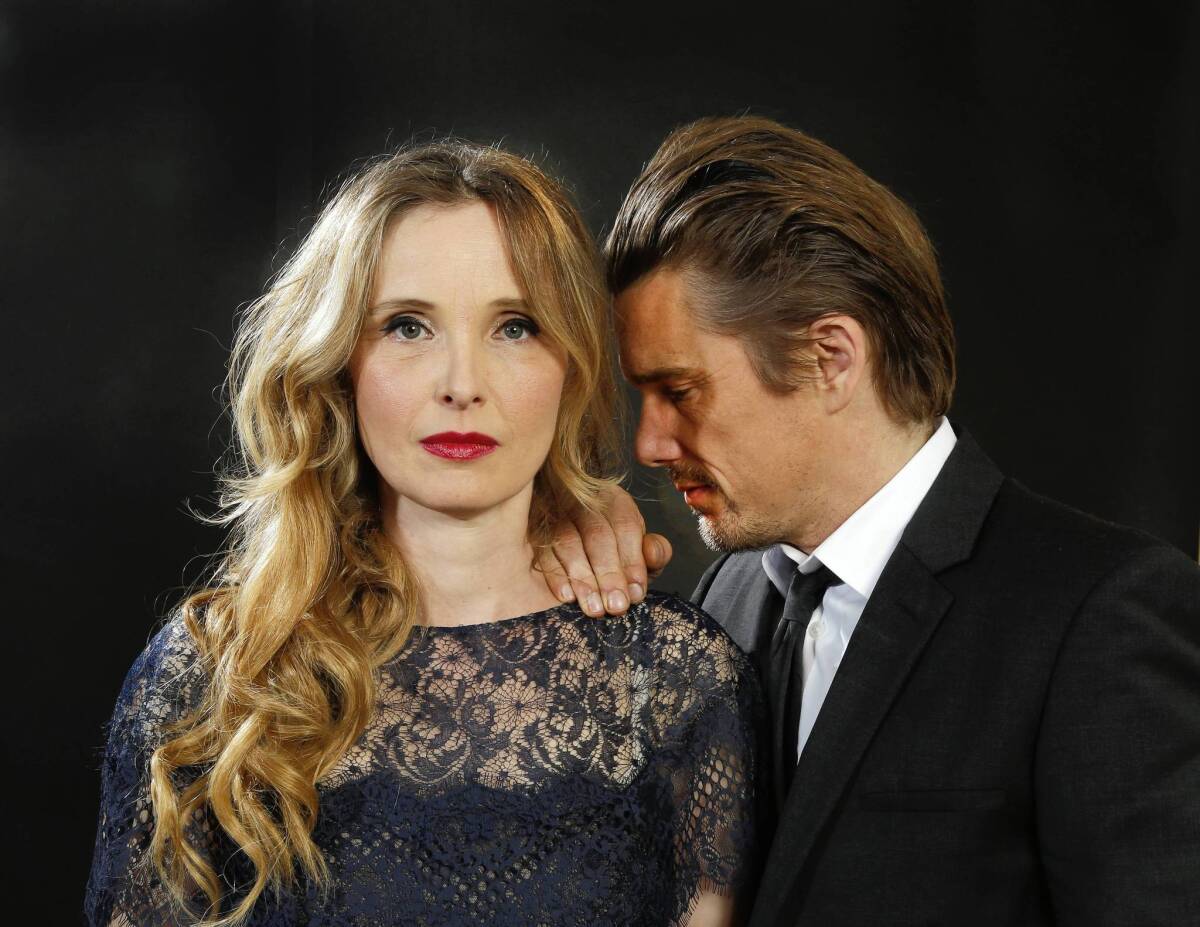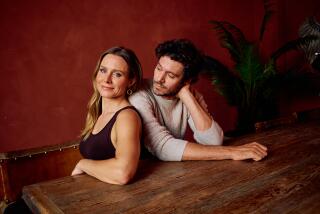Richard Linklater’s dawning collaboration with Julie Delpy, Ethan Hawke

Cast attractive actors who also happen to be writer-directors in your movie and you’re setting the stage for a prolonged and unusual journey. Filmmaker Richard Linklater can see that now: how the extra talents latent in Ethan Hawke and Julie Delpy emerged in an organic way to deepen the collaboration and turn a one-off independently made romance — 1995’s talky, philosophical “Before Sunrise” — into a compelling and unusual film series that now stands at three.
The latest, “Before Midnight,” follows the central couple, Jesse and Celine, into a fraught middle-age, where the relationship they so boldly and romantically invested in while younger is now crashing against the rocks of regret and consequences.
“You couldn’t have planned this,” Linklater says of the ongoing collaboration and its parallels to their own life experiences. “You never know what’s going to happen creatively between people, but this has always felt special, and like we still had more to express.”
On the first film, Hawke and Delpy wrote additional dialogue; on the second, “Before Sunset,” they collaborated fully with Linklater on the screenplay, and on the newest they convened on a Greek isle for 10 weeks of intensive writing that involved talking, pacing and passing a laptop computer between them. None of this work is done in character, they say — there’s no improvisation, even at this early stage, and everything you see on the screen is in the screenplay. “We’re just talking, not acting it out,” says Linklater. “And then 90% of what we write down gets winnowed out.”
“Before Midnight” drops in on Jesse and Celine when they are nine years into a committed relationship that has produced twin daughters but has also removed Jesse from his son, Henry, whom he left behind with the boy’s mother in the States to move to Paris. That decision is now eating at him and leads to an epic marital showdown in a hotel room. At stake is no less than the survival of the relationship: Will Celine’s professional goals be compromised to assuage Jesse’s personal regrets, or will she refuse to be manipulated and walk away from their life together?
“We wanted to do the best fight scene we possibly could — the kind that starts small and keeps building, and every time you think it’s over, someone throws more gas on the fire,” Linklater says of the 30-minute conflagration, which forms the movie’s emotionally riveting climax. “We wanted to see them bringing their best stuff to the fight because that’s how people argue.”
PHOTOS: Celebrities by The Times
Given the universality of the simmering issues, the collaborators also bring personal experience. Delpy, who has a 4-year-old son, is candid about the gender politics involved: “It’s always been so hard for me to manage motherhood and work. Some men are a little boggled that women don’t only want to be mothers. There’s an extra layer of guilt — the idea that you don’t love your child if you still want to work.”
But Hawke makes it clear that the opportunity to lob shots across the bow from the male point of view is not what drives him. “The goal is to write with a compassionate eye and be gender-neutral,” he says. “Julie helps illuminate the character of Jesse as much as I help illuminate Celine. If anything, we were concerned with bringing a powerful feminine voice to the movie.”
The bond between Linklater and Delpy is evident as they wind down at a Los Angeles hotel the day after a Hollywood awards show at which “Before Midnight” was honored; they’re lit up in each other’s presence, jumping enthusiastically into a conversation, their points of view tumbling together amid Delpy’s merry peals of laughter. Hawke, who’s had to return to New York, where he’s rehearsing “Macbeth” for a Lincoln Center Theater production, joins the conversation by phone.
Despite the success of their joint venture — the middle film, “Before Sunset,” landed an Oscar nomination for its screenplay — none of them can say whether Jesse and Celine’s story will continue. “People think it’s easy for us to do these movies, but it isn’t,” says Delpy. “To write a screenplay that has no real plot to rely on and is only held together by people talking and their emotions — it’s almost impossible,” she says. Linklater’s shooting style — he favors long takes, including, this time around, an unbroken 14-minute family squabble in a moving car — only adds to the challenge, but it’s essential to what they’re out to create.
“Most movies today are cut like ads,” says Hawke. “They try to make life glamorous, as if it’s not beautiful enough as it is. Richard finds what’s beautiful in the midst of what others might consider boring and mundane. He hunts for that in his movies, and so do we.”
More to Read
Only good movies
Get the Indie Focus newsletter, Mark Olsen's weekly guide to the world of cinema.
You may occasionally receive promotional content from the Los Angeles Times.










